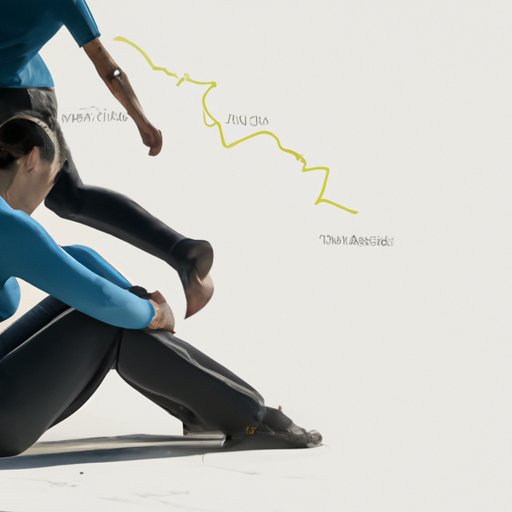Overview of Kinesiology and Exercise Science
Kinesiology and exercise science are two closely related disciplines that focus on the study of movement and physical activity. The terms “kinesiology” and “exercise science” are often used interchangeably, but there are some important distinctions between the two.
Definition of Terms
Kinesiology is defined as the scientific study of human movement, performance, and function. It is a broad field that encompasses a wide range of sub-disciplines, including biomechanics, motor control and learning, exercise physiology, and sports psychology.
Exercise science is a more specialized area of study that focuses specifically on the physiological and psychological effects of physical activity and exercise. It includes topics such as nutrition, metabolism, fitness training, and sports medicine.
Major Fields of Study in Kinesiology and Exercise Science
Kinesiology and exercise science are multi-disciplinary fields that incorporate elements of biology, anatomy, physiology, psychology, and biomechanics. Some of the major areas of study include:
- Biomechanics: This branch of kinesiology focuses on the study of forces acting on the body during movement and how they impact performance. It includes topics such as joint mechanics, muscle mechanics, and energy transfer.
- Motor Control and Learning: This area of study focuses on how the nervous system controls movements and the processes involved in learning new skills.
- Exercise Physiology: This branch examines how the body responds to physical activity and exercise, with a focus on the cardiovascular, respiratory, and muscular systems.
- Sports Psychology: This field explores the mental and emotional aspects of sport and physical activity, such as motivation, goal-setting, and self-regulation.
Career Opportunities in Kinesiology and Exercise Science
There are a wide variety of career opportunities available in kinesiology and exercise science. These jobs can be found in clinical settings, research labs, and corporate wellness centers, among other places.
Types of Jobs Available
Kinesiologists and exercise scientists typically work in one or more of the following roles:
- Fitness Trainers and Coaches: These professionals help others improve their physical fitness by developing individualized exercise plans. They may also provide instruction on proper form and technique.
- Athletic Trainers: Athletic trainers specialize in preventing, diagnosing, and treating injuries related to physical activity. They work with athletes of all ages and abilities.
- Rehabilitation Specialists: These professionals help people recover from illness or injury through individualized rehabilitation programs.
- Research Scientists: Research scientists conduct studies to better understand the effects of physical activity and exercise on the body.
Requirements for Entry-level Positions
Most entry-level positions in kinesiology and exercise science require at least a bachelor’s degree in a relevant field. In addition, many employers prefer candidates who have completed an internship or have previous experience in the field.
Salary Expectations
According to the U.S. Bureau of Labor Statistics, the median annual wage for kinesiologists and exercise scientists was $47,510 in 2019. Salaries vary widely depending on the type of job, level of education, and years of experience.

The Benefits of Kinesiology and Exercise Science
Kinesiology and exercise science offer numerous physical, mental, and social benefits. Studies have shown that regular physical activity can reduce the risk of chronic diseases, improve mental health, and increase life expectancy. Additionally, these fields promote healthy lifestyle habits that can benefit individuals throughout their lives.
Physical Health Benefits
Regular physical activity has numerous physical health benefits, including:
- Reduced Risk of Chronic Diseases: According to a 2017 study published in the American Journal of Preventive Medicine, regular physical activity can reduce the risk of coronary heart disease, stroke, type 2 diabetes, and certain types of cancer.
- Improved Cardiovascular Health: Exercise can help strengthen the heart and lungs, leading to improved cardiovascular health. A 2009 study published in the Journal of the American College of Cardiology found that regular physical activity can reduce blood pressure and cholesterol levels.
- Weight Management: Regular physical activity can help maintain a healthy weight. A 2017 study published in the International Journal of Behavioral Nutrition and Physical Activity found that regular exercise can reduce body fat and improve body composition.
Mental and Emotional Health Benefits
Physical activity has been shown to have numerous mental and emotional health benefits, including:
- Stress Reduction: Exercise can help reduce stress levels by releasing endorphins, which are chemicals that act as natural mood enhancers. A 2011 study published in the British Journal of Sports Medicine found that regular physical activity can reduce stress and anxiety.
- Improved Mood: Regular physical activity can boost mood and help prevent depression. A 2018 study published in the Journal of Affective Disorders found that regular exercise can significantly reduce symptoms of depression.
- Enhanced Cognitive Function: Exercise can help improve cognitive function by increasing oxygen flow to the brain. A 2013 study published in the Neurology journal found that regular physical activity can improve memory and concentration.
Social Benefits
In addition to the physical and mental health benefits, kinesiology and exercise science offer numerous social benefits. Exercise can help build relationships and foster a sense of community. It can also improve self-esteem and help individuals feel more connected to others.

Educational Pathways for Kinesiology and Exercise Science
Individuals interested in pursuing a career in kinesiology and exercise science have several educational pathways to choose from. Degrees and certifications are available at the undergraduate, graduate, and doctoral levels. Additionally, there are online and on-campus programs available.
Degrees and Certifications
Kinesiology and exercise science degrees and certifications include:
- Bachelor’s Degree: A bachelor’s degree in kinesiology or exercise science typically takes four years to complete. It provides students with a comprehensive introduction to the field, covering topics such as anatomy, physiology, and biomechanics.
- Master’s Degree: A master’s degree in kinesiology or exercise science typically takes two to three years to complete. It provides a more in-depth exploration of topics such as motor control, nutrition, and exercise physiology.
- Doctoral Degree: A doctoral degree in kinesiology or exercise science typically takes four to six years to complete. It provides students with advanced knowledge of topics such as sports psychology, research methods, and statistics.
- Certification: There are several certification programs available for kinesiologists and exercise scientists. These include the American College of Sports Medicine’s Certified Exercise Physiologist and Certified Personal Trainer certifications.
Online Programs
Many universities and colleges offer online kinesiology and exercise science degrees and certifications. These programs provide students with the flexibility to study from home and learn at their own pace.
On-Campus Programs
For those looking for a more traditional learning environment, there are on-campus kinesiology and exercise science programs available. On-campus programs typically involve lectures, labs, and hands-on experiences.

Current Trends in Kinesiology and Exercise Science
Kinesiology and exercise science are rapidly evolving fields, and there are several trends that are currently shaping the industry. These include the use of technology, advances in research, and the emergence of new specializations.
Technology
Technology is playing an increasingly important role in kinesiology and exercise science. Wearable devices such as fitness trackers and smartwatches are becoming more popular, allowing individuals to monitor their physical activity and performance. Additionally, apps and online platforms are being developed to facilitate remote coaching and health tracking.
Research
Advances in research are helping to further our understanding of the effects of physical activity and exercise on the body. New studies are being conducted on topics such as the health benefits of yoga, the impact of diet on athletic performance, and the effects of sleep on recovery.
Specializations
As the field continues to evolve, new specializations are emerging. These include specializations in sports nutrition, strength and conditioning, and sports medicine. These specializations allow kinesiologists and exercise scientists to gain additional expertise in specific areas.
A Day in the Life of a Kinesiologist or Exercise Scientist
A typical day in the life of a kinesiologist or exercise scientist will vary depending on the type of job they have. However, most professionals in these fields will spend their days educating clients, conducting research, analyzing data, and collaborating with colleagues.
Sample Schedule
A sample daily schedule for a kinesiologist or exercise scientist might include:
- 8:00am – 9:00am: Prepare for the day by reviewing client files and setting up equipment.
- 9:00am – 12:00pm: Conduct fitness assessments and develop individualized exercise plans.
- 12:00pm – 1:00pm: Take a break for lunch.
- 1:00pm – 4:00pm: Monitor client progress and provide guidance and support.
- 4:00pm – 5:00pm: Analyze data and review research papers.
- 5:00pm – 6:00pm: Participate in team meetings and collaborate with colleagues.
Typical Tasks
Kinesiologists and exercise scientists typically perform the following tasks:
- Developing individualized exercise plans
- Instructing clients on proper form and technique
- Monitoring client progress and providing feedback
- Conducting research and analyzing data
- Collaborating with colleagues and other professionals
Challenges Faced
Kinesiologists and exercise scientists may face challenges such as:
- Managing client expectations
- Staying up-to-date with the latest research and trends
- Adapting to changing technologies and practices
Kinesiology and exercise science offer numerous physical, mental, and social benefits. With the right education and training, individuals can pursue rewarding careers in this growing field. Whether it’s helping a client reach their fitness goals or conducting research to further our understanding of the body, kinesiology and exercise science provide an opportunity to make a positive impact on the world.
(Note: Is this article not meeting your expectations? Do you have knowledge or insights to share? Unlock new opportunities and expand your reach by joining our authors team. Click Registration to join us and share your expertise with our readers.)
